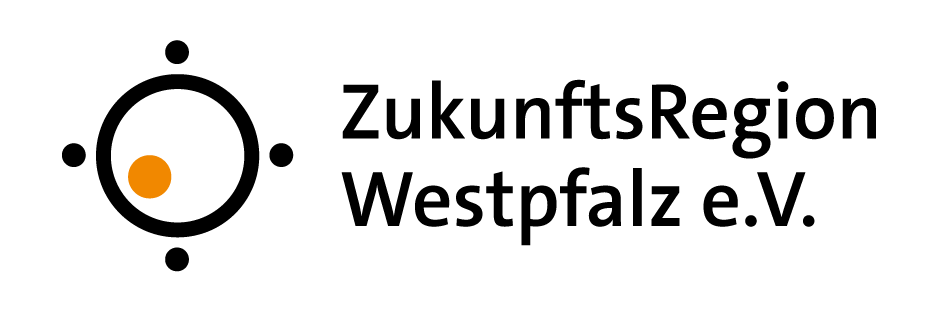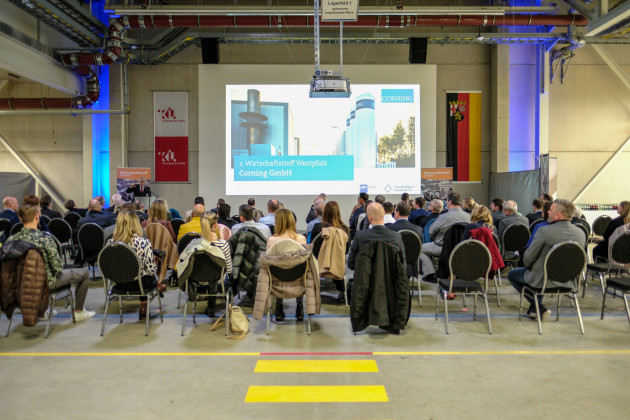For the second time, the "Wirtschaftstreff Westpfalz" (Business Meeting West Palatinate) took place on March 30, 2023. This time, the host was Corning GmbH in Kaiserslautern. The American corporation, which was founded in 1851 in Corning (New York State) and employs around 58,000 people worldwide, produces ceramic substrates and high-performance filters for exhaust gas aftertreatment in the automotive sector at its Kaiserslautern site.
After the approximately 60 guests had gathered at the plant at 4 p.m., Mayor Dr. Klaus Weichel opened the event with a welcoming speech. One topic that was critically viewed by the Mayor was particularly emphasized: the lack of commercial areas in Kaiserslautern. Recently, there had been political resistance to the designation of new commercial areas and the establishment of a special-purpose association for commercial area management. In recent months, there have also been numerous highly interesting companies that would have liked to settle in Kaiserslautern, but had to be turned away due to a lack of space. Although the rate of unemployment has been significantly reduced in recent years thanks to a very positive economic development with major company expansions (e.g. the Corning plant) and relocations (e.g. Amazon), the restrictive approach is currently squandering future opportunities for the region.
Afterwards, the company Corning was presented by Thomas Neuberger, who is the plant manager at the Kaiserslautern site. Of particular interest here was the overview of the company's production and innovation history, which showed that Corning already understood how to find innovative solutions in order to remain competitive. This was followed by a keynote speech by Klaus Wellstein, Managing Director of Corning GmbH, on the topic of "The future of combustion engines and energy supply in the Western Palatinate". The topic was about the end of the production of combustion engines in Europe by 2035 as well as the rising energy costs. It became clear that energy prices in Germany were the greatest threat to the Kaiserslautern site. Although the company has benefited greatly in recent years from the EU's increasingly stringent exhaust emission limits, part of the added value for products sold in Europe is already being generated in the USA and China. Among other things, higher labor costs are to blame for this, but in particular also the costs for electricity and gas, which have been significantly higher in comparison for years, which is a decisive factor for an energy-intensive company like Corning.
However, despite the current challenges for Corning, the message was clear: 2035 will not be the end of the Corning site in Kaiserslautern. Innovative alternatives are being sought, e.g. carbon capture & storage plays an important role here. The Kaiserslautern plant was the 1st Corning plant worldwide where test production has already been successfully carried out.



